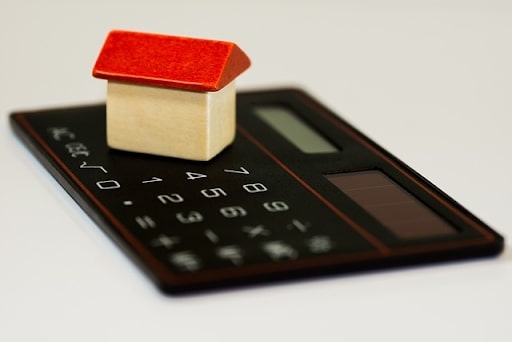The Importance of Appraisal in
Real Estate Transactions

In the intricate dance of buying and selling properties, one key player often remains overlooked: the appraisal process. Understanding the importance of appraisal can make or break a deal. Let’s dive into the pivotal role of appraisals and how they ensure successful real estate transactions. If you’re ever left wondering why appraisals are important, read on.
Deep Dive into the World of Appraisals
At this point, you might be thinking, “Sure, appraisals sound vital, but how do they fit into the wider real estate landscape?” This is a worthy question, and to truly grasp the significance of appraisals, we need to dive deeper.
For starters, imagine buying a piece of art. To the untrained eye, it may seem like any ordinary painting, but an art aficionado might recognize its worth millions. Similarly, properties have hidden values and potential pitfalls that aren’t immediately evident. This is where appraisals come in: acting as the discerning eye in real estate, highlighting what’s invaluable, and what’s not.
Now, considering the vast range of properties out there, from cozy apartments to sprawling estates, the appraisal process becomes even more critical. Different properties come with their unique challenges and features, and having a professional to dissect these intricacies is invaluable. That is where Triangle Appraisal Group (TAG) comes into play. We have been a trusted partner in the real estate world for almost 30 years, and counting!
Why Appraisals are Important in Various Scenarios
Appraisals play a central role in the world of real estate. But exactly why are appraisals important? They provide an objective assessment of a property’s value, ensuring home buyers aren’t overpaying their purchase price, or sellers aren’t undervaluing what their home is worth.
For many homeowners, the question isn’t just about importance but also accuracy: are home appraisals accurate? Typically, an expert appraisal delivers a trustworthy assessment of a property’s worth. Without appraisals, the real estate transaction process would be murky territory filled with uncertainties.

The Significance of Accurate Home Appraisals for
Mortgage Lenders
When it comes to the realm of home financing, lenders are pivotal players. Their decision to grant or decline a mortgage loan can make or break a home buyer’s dream. At the heart of their decision-making process lies the appraisal report- a document that, despite its seeming simplicity, carries monumental weight:
Risk Assessment
Every loan given out is an investment and, naturally, carries a risk. If a borrower defaults, the lender’s primary recourse is the property in question. An accurate real estate appraisal ensures that the mortgage lender doesn’t lend more than the property is worth. By having a trustworthy appraised value, lenders can be confident about the maximum amount they can recoup in case the mortgage loan goes south.
Determining Mortgage Loan Amount
It’s a common misconception that buyers determine the size of mortgage loans. In reality, the appraised value of the property dictates this. Lenders rely heavily on accurate appraisals to decide the maximum loan amount they’re willing to offer. If a property appraises higher than the sale price, then there could be more equity in the property for the buyer. Conversely, a low appraisal can halt a deal in its tracks. For more information on mortgage options and assistance in North Carolina, visit the North Carolina Housing Finance Agency.
Market Confidence
An accurate home appraisal isn’t just for internal use; it also influences the larger real estate and financial markets. When lenders regularly approve mortgage loans based on accurate appraisals, it helps in maintaining confidence in the housing market and the financial system at large
Portfolio Management
For institutions that hold onto mortgage loans or plan to sell them in the secondary market, the aggregated appraised value of their entire portfolio becomes crucial. Accurate home appraisals ensure that the portfolio’s value is genuinely reflective of the market, which can impact everything from investor relations to regulatory compliance.
Borrower’s Peace of Mind
While primarily for their protection, lenders offering loans based on accurate appraisals also provide reassurance to borrowers. Knowing that professionals have carefully assessed their future home gives borrowers confidence that they’re making a sound investment. Moreover, an accurate appraisal can influence the need for Private Mortgage Insurance (PMI), enabling its removal once sufficient equity is established.
In essence, while appraisals might seem like just another piece of the home-buying puzzle, they are foundational for lenders. The relationship between the mortgage loan amount and the property’s appraised value is inseparable. With stakes so high, the emphasis on the accuracy of these valuations becomes all the more paramount.
The Role of Accurate Appraisals in the
Real Estate Closing Process
The real estate closing process is a crucial phase in property transactions, marking the culmination of weeks, if not months, of negotiation, inspection, closing costs, and documentation. It’s where ownership transfers from seller to buyer. Yet, amidst the pile of paperwork and flurry of final checks, the appraisal report remains as the determining factor for a multitude of things:
Determining the Transaction Price
At its core, an accurate appraisal establishes the property’s market value, influencing the final agreed-upon sale price. Both buyers and sellers come to the closing table with clearer expectations when the appraisal mirrors the true market value of the property. If a house is appraised higher than the agreed price, the buyer gains instant equity. If it’s lower, renegotiations may occur, or buyers may need to increase their down payment.
Financing Approval
For transactions involving mortgage financing, lenders rely on appraisals to determine loan amounts. A home selling for $300,000 but appraised at $280,000 may see financing challenges. A mortgage company might not finance more than what the property is appraised for, and an accurate appraisal ensures a smoother financing process leading up to closing.
Title Insurance and Property Tax Adjustments
Title companies examine appraisals when issuing title insurance, ensuring the amount of coverage is appropriate for the home’s value. Furthermore, local municipalities might reference appraisals when adjusting property tax values, which can impact the new owner’s future property tax commitments.
Eliminate Buyer’s Remorse
An accurate appraisal gives buyers confidence in their purchase. Knowing they’re paying a fair price, reflective of the current market, can ease potential anxieties about overpaying for a property.
Protection for All Parties
At the end of the day, an accurate appraisal protects everyone involved. Sellers are assured of a fair price, buyers are shielded from overpaying, and lenders have confidence in the collateral value of the property.
Expedited Closing Process
Discrepancies or disputes over a property’s value can cause significant delays. An accurate appraisal minimizes these hiccups, ensuring all parties can proceed to a timely closing. At TAG, we pride ourselves on an average turnaround time of 3-5 days, so you can rest easy knowing your appraisal report should be ready by the end of your work week.
In the multifaceted orchestra of the real estate closing process, the appraisal plays a leading role, setting the tone for a harmonious transaction. Its accuracy is vital, ensuring that every step, from initial offer to handing over the keys, plays out seamlessly. Without it, the closing process could hit sour notes, leading to delays, disputes, or even deal breakers. In the end, a trustworthy appraisal ensures that the grand finale of the real estate transaction is indeed grand for everyone involved.

What are the Keys to an Accurate Appraisal?
The stakes are high when it comes to property transactions, prompting the question: how accurate are appraisals? Delving into its core components offers insights into why it holds such significance, as well as what the accuracy of the report is dependent on.
Valuation Precision
At the heart of every accurate appraisal is precise valuation. Properties are as diverse as they come, and each carries its unique characteristics. The core of accurate appraisals is assessing properties not just by their tangible features, like square footage or the number of rooms, but also by more intangible factors such as location desirability and market trends. Also, evaluating recent sales of similar properties in the vicinity gives a clearer picture, allowing the appraisal to be grounded in both current context and objective data.
Empowering Informed Decisions
Every stakeholder in the real estate process, be it the buyer, the seller, the lender, or mortgage company, requires clarity. An accurate appraisal acts as a compass, pointing towards decisions that resonate with the property’s intrinsic value. As we discussed above, buyers can determine if the asking price is reasonable, while sellers can ensure they aren’t underselling their asset. Lenders on the other hand, can confidently decide the amount they’re willing to lend, reducing their risks.
Navigating Transaction Confidence
In the intricate world of real estate transactions, confidence is king. An accurate appraisal bridges the trust gap for everyone involved. This confidence, built on a foundation of rigorous evaluation, ensures that the real estate transaction process is smooth, with fewer hiccups and renegotiations.
Fair Market Value Insights Unveiled
The real estate market is ever-evolving. These fluctuations are often influenced by factors beyond the property
itself, such as economic dynamics or regional developments. An accurate appraisal doesn’t just look inward at
the property, but outward at the larger market. By offering actual market value insights into current trends and
potential shifts, a real estate professional is equipped with foresight. This enables proactive, rather than reactive,
decisions during the real estate closing process. For more detailed insights into economic developments
affecting the Charlotte area, visit the Charlotte Regional Business Alliance.
Equitable Dealings
One may wonder, what is the key to an accurate home appraisal? Beyond methodologies and data, it’s the principle of fairness. A balanced transaction where neither party feels shortchanged is the ideal outcome. Accurate appraisals ensure this equilibrium. They champion transparency, ensuring both buyer and seller walk away from the table with a sense of satisfaction, knowing their deal mirrors the property’s true value.
Each of these facets of accurate appraisals intertwines, culminating in a process that’s both an art and a science. Through meticulous evaluation and a deep understanding of the market, appraisals illuminate the path for all parties involved in a real estate transaction.

Sealing the Real Estate Deal
The art of real estate doesn’t simply revolve around beautiful properties and negotiations. It’s underpinned by the importance of appraisal, a process that ensures fairness, clarity, and confidence in every deal. Whether you’re curious about why appraisals are important or questioning, “are home appraisals accurate?”, know that these evaluations are the cornerstone of transparent transactions. If you are ready to take the next step in your real estate transaction and are searching for a quick, hassle-free process, TAG us in! We are here to make this process hassle free for you, so you can get back to your life.

FAQs
The appraisal is important to several parties in a real estate transaction. For buyers, it ensures they are not overpaying for the property. Sellers benefit from it as confirmation of their property’s market value. Lenders use the appraisal to determine how much money they can safely lend without incurring undue risk.
The most important aspect of the appraisal process is the accuracy of the valuation. This accuracy ensures fair pricing, protects the investment of all parties, and supports the lending decision. It relies heavily on the appraiser’s expertise, the quality of the comparable market analysis, and the thoroughness of the property inspection.
- Inspection, where the appraiser examines the property’s condition and features.
- Comparables, which involve analyzing the prices of similar properties that have recently sold in the same area.
- Reporting, where the appraiser compiles the data and analysis into a comprehensive appraisal report detailing the estimated value of the property.

